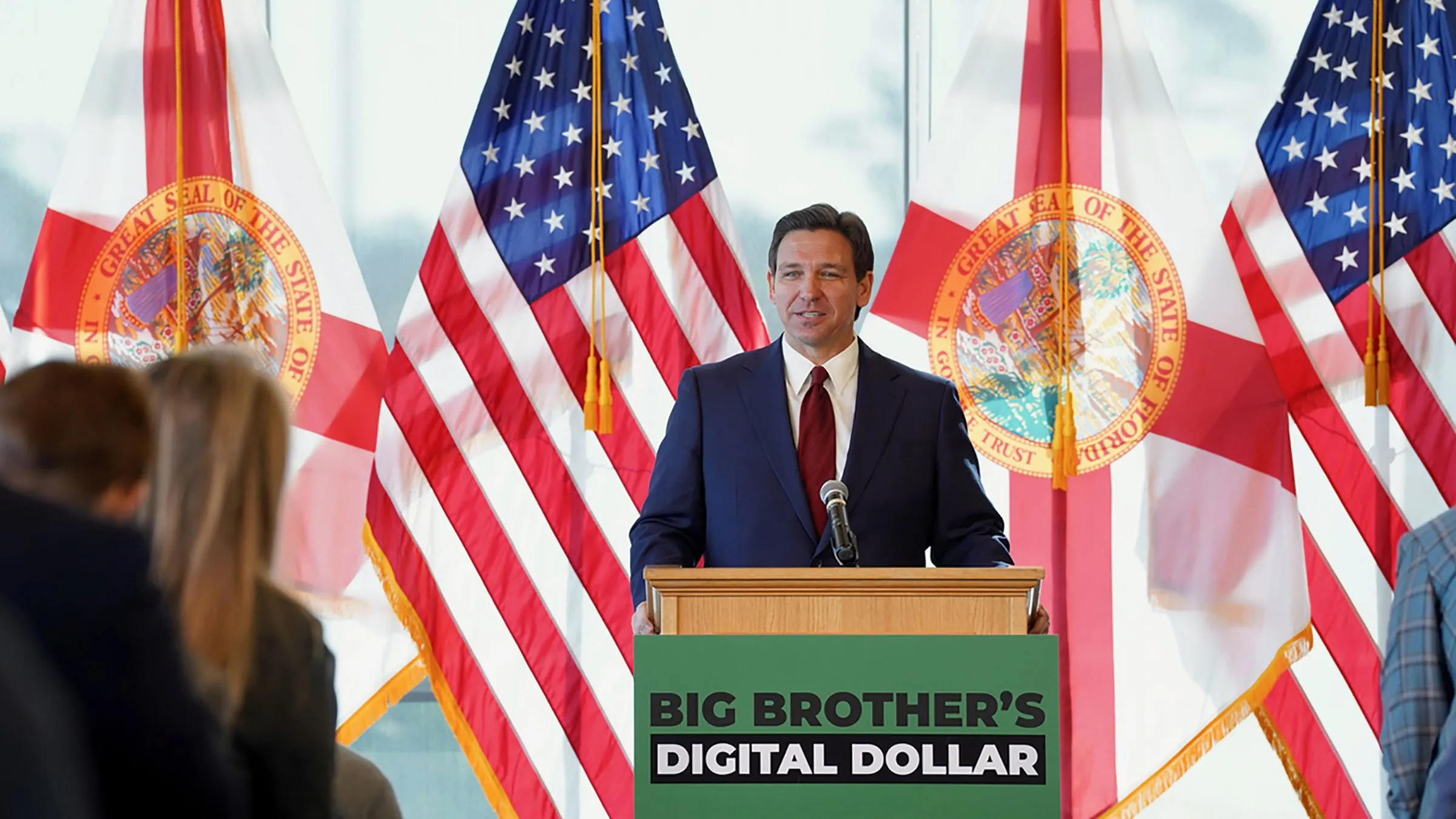Florida Governor Ron DeSantis took another swing at a U.S. digital dollar today even as he defended crypto as a whole, unveiling a series of state legislative proposals that would combat "woke politics."
"They don't like crypto because they can't control crypto," he said in answer to a question posed at a Tuesday press conference. "They want to get rid of crypto, which my view is, if you want to invest in crypto, it's up to you, you can do it, you can make those decisions."
"They," presumably, refers to Democrats in Washington, D.C., who have—along with Republicans—made cryptocurrency a major policy issue. DeSantis suggested that his political opponents are pursuing the creation of a Central Bank Digital Currency (CBDC), which would be issued, backed, and tracked by the government.
DeSantis had previously announced a state bill to ban CBDCs, branding it as “Big Brother’s Digital Dollar."
"The danger of the digital currency is that they want to make that the sole currency—they want to put everything in a central bank digital currency," he said. "I think that that's fundamentally wrong, so we're recognizing the dangers with this agenda."
The press conference was titled "Government of Laws, Not Woke Politics," and was focused on a package of bills that oppose "'Environment, Social, and Governance" or ESG policies. Such policies stem from a push to introduce factors beyond pure financial performance in evaluating a company or organization, such as environmental and community impact.
"So-called 'ESG' policies represent an attempt to impose, through the economy, an ideological agenda," the DeSantis campaign declared, saying they "prioritize woke ideals and virtue signaling over commonsense financial practices."
The legislative package blocks the use of ESG in all investment decisions at the state and local level in order to ensure that "only financial factors are considered to maximize the return on investment." It also bans the financial sector from considering so-called "social credit scores" in banking and lending practices—a practice some link to a social rating system implemented in China.
Another bill bans discriminating against customers for their religious, political, or social beliefs, and DeSantis says examples of the latter include "owning a firearm, securing the border, or increasing our energy independence."
The governor tied a CBDC to these "woke" practices by saying that proponents "will impose ESG and social credit scores onto that, and that's going to be a huge reduction in freedom for people in this country."
"I don't think Congress would authorize it, but if the Fed or the Treasury tries to do it unilaterally in Florida, we'll have a prohibition against that," he said. "That's ensuring your financial independence and making sure that we don't have a financial surveillance state where they know every transaction that you're making."
In announcing the proposed ban on CBDCs in March, DeSantis said the digital dollar is "all about is surveilling Americans and controlling Americans.”
“You're opening up a major can of worms, and you're handing a central bank huge, huge amounts of power," he added. "And they will use that power.”
DeSantis has been a front-line warrior in the war against "woke politics" currently firing up the national Republican party. He remains embroiled in a high-profile battle with Disney, one of Florida's largest economic drivers and employers.
The global entertainment giant spoke out last spring against Florida laws banning the inclusion of LGBTQ content in school curricula. In retribution, DeSantis is attempting to clip Disney's wings, calling it "a woke corporation based in California."

